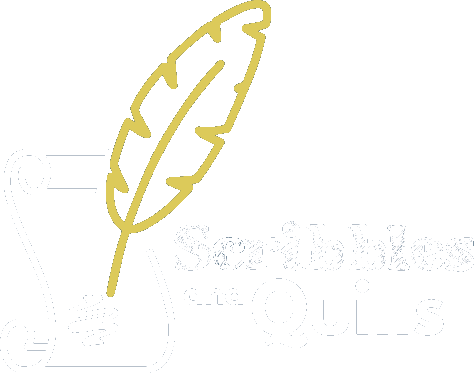The Importance of Editing and Proofreading for Self-Published Authors
Written by Radeyah H. Ali
When you self-publish, you wear many hats: writer, editor, marketer, and more. But one of the most important roles you must take seriously is that of the editor. The quality of your book can make or break its success, and proper editing and proofreading are essential steps in ensuring that your book is polished, professional, and ready for readers. In this post, we’ll explore why editing is crucial for self-published authors and offer tips on how to approach this vital process.
1. The Power of First Impressions
The first impression readers have of your book is the writing itself. A book with poor grammar, spelling mistakes, and awkward sentence structures can alienate readers and negatively impact your reputation. Even a great story can be undermined by errors that distract from the content. A well-edited book signals to readers that you are a professional and that you value their time and attention.
2. Types of Editing Every Book Needs
Editing can be broken down into several stages, and each one serves a different purpose:
- Developmental Editing: This type of editing focuses on the big picture—structure, pacing, character development, and overall flow. Developmental editors work with you to shape your manuscript into its best form.
- Copyediting: Copyediting addresses grammar, punctuation, spelling, and sentence structure. Copyeditors ensure that the text is clear, concise, and free of errors.
- Proofreading: The final stage of editing, proofreading is the process of reviewing the manuscript for any remaining errors. It’s essential for catching overlooked mistakes and ensuring the manuscript is ready for publication.
3. Why Professional Editing Is Essential
While you may be tempted to edit your own work, it’s important to have a fresh set of eyes look at your manuscript. A professional editor brings expertise and objectivity to the process, catching mistakes you might miss. They also provide valuable feedback on areas for improvement, whether it’s tightening up a weak scene or addressing inconsistent character behaviour. At Scribbles and Quills Limited, we provide editing services to fit your specific needs through Scribble It Publishing. Reach out to us to see if we are a good fit for you.
4. Finding the Right Editor
Finding the right editor can make a huge difference in the success of your book. Look for editors who have experience working with self-published authors or those familiar with your genre. Many editors work remotely, so you can hire someone from anywhere in the world. Ask for recommendations from fellow authors, read reviews, and request sample edits before committing.
5. Editing on a Budget
Professional editing services can be costly, but there are ways to make it affordable. Many editors offer different packages based on your budget and the level of editing your manuscript requires. If you’re on a tight budget, consider focusing on copyediting and proofreading first, and then work your way up to developmental editing as your writing career grows. Another option is to barter or exchange services with other writers.
Conclusion
Editing and proofreading are non-negotiable parts of the self-publishing process. By investing in professional editing services, you ensure that your book stands out in a competitive market. A well-edited manuscript improves your chances of success and helps you build a reputation as a serious, professional author. Don’t skip this step—it’s the key to putting your best foot forward as you share your stories with the world.
Happy writing!
This blog post is part of a series, “Author Resources” written by Radeyah H. Ali, C.E.O. and founder of Scribbles and Quills Limited: An Independent Bookstore.
